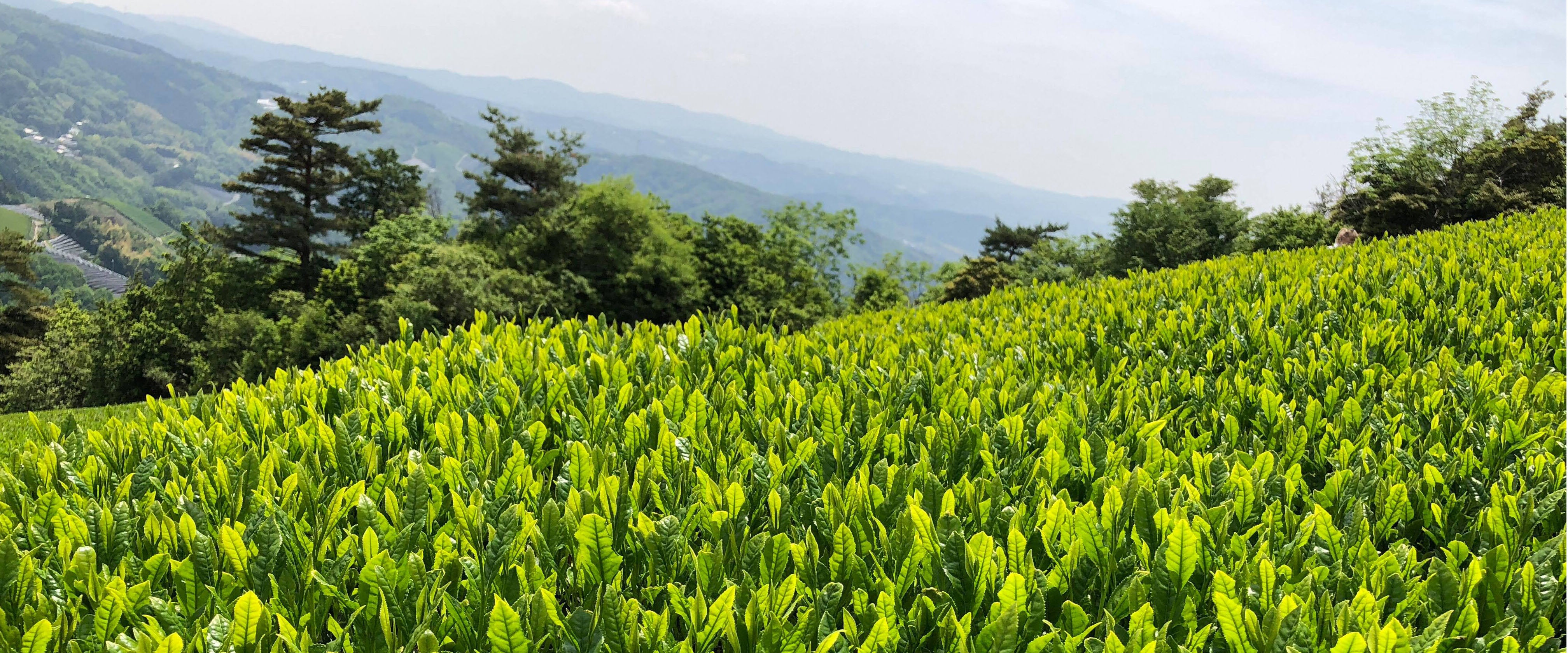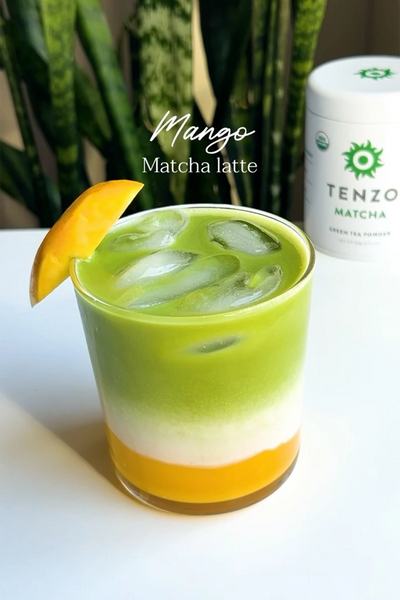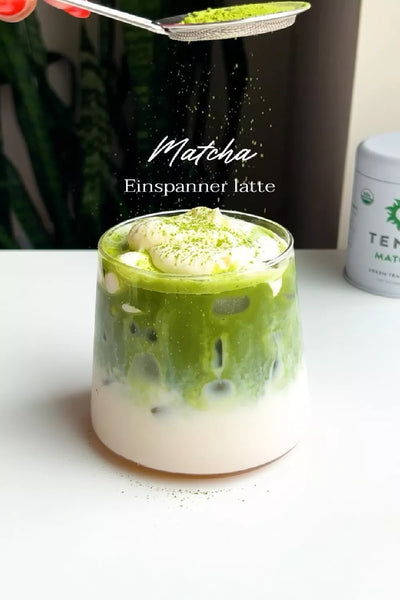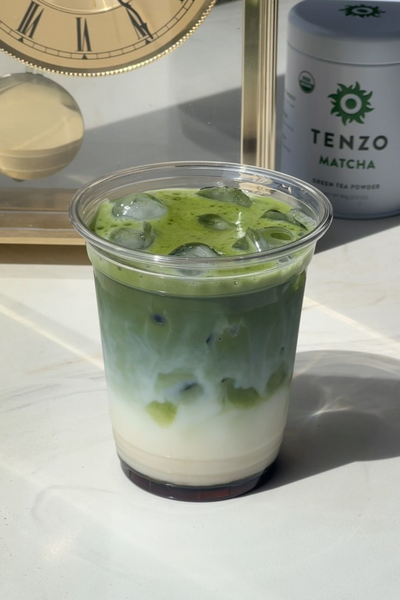Yerba Mate vs Matcha

Yerba Mate vs Matcha
Posted on July 22, 2020 | by Steve O'Dell
The Battle of the Beneficial Beverages
First things first, let’s hear from the competition.
Yerba Mate, or mate if you’re feeling trendy, is an herbal tea made from the leaves and twigs of the Ilex paraguariensis plant. It has garnered widespread popularity for its fresh taste and numerous health benefits. It’s also been shown to support weight loss efforts and boost energy.
If it sounds familiar, it’s because it is. Our very own beloved matcha is also a tea, well-loved for its numerous health benefits, sustained energy boost, and ability to help you lose weight. On the surface, Yerba Mate and matcha may seem interchangeable, but dig a little deeper and you’ll spot some key differences. To save you some time, we went ahead and put a little something together for you. In our opinion, there’s more than enough room for both of these tasty beverages in your life, but of course, we can’t blame you if at the end, you’re left with no choice but to proclaim matcha the winner.
Let the Battle of the Beverages Begin
Origin- The Beginnings
Way, way, way back, in the year 1191 matcha was developed by a Japanese monk as a ceremonial tea. The ritual of preparing and consuming matcha was then passed down through the years, with each generation honoring the practice that this one monk created. Little did he know that centuries later, we’d still be partaking in his creation. And although we may not always enjoy it the way he did (hello matcha donuts) the health benefits and fresh taste of matcha will never be lost to time.
On the other side of the world, in the temperate climate of South America, the ancient Guarani Tribes were mixing up their own concoction. Derived from the native lex paraguariensis plant, Yerba Mate is a tea made from its leaves and branches. It was originally used as a cultural symbol of the Guarani, but was quickly discovered by Jesuit priests who brought it all over the world.
Taste & Texture- The Experience
As you may know, matcha is an extremely potent variety of green tea, made by crushing the entire leaf into the bright green powder you see below. The leaves are de-veined and de-stemmed, which helps the matcha powder become fine and smooth, and even the growing and cultivating process is tailored to give you the best product possible.
The taste of matcha is naturally sweet with a slight earthy overtone and a tiny hint of bitterness. Basically, matcha tastes very similar to a strong green tea. It pairs well with almost any flavor, and in addition to being the perfect addition to many drinks, matcha works brilliantly in food recipes as well. If you ever want a little bit of matcha inspo, check our recipe page. Matcha is only as limited as your imagination.

Yerba Mate is made from dried leaves of Ilex paraguariensis tree. The leaves are harvested from a forest and then dried to be prepared for consumption. Unlike the powder in matcha, Yerba Mate can only be prepared by being steeped in water.

Also, unlike matcha, Yerba Mate has what we in the biz call an “acquired taste.” Much like a grapefruit, Mate has extremely high levels of tannin that give it a distinctly bitter flavor. It’s also more “woody” than matcha because the veins and stems are not removed from the leaves. This is why you’ll most often find Yerba Mate in pre-made drinks with sugar and added flavors.
Preparation- The Process
As we mentioned earlier, matcha is extremely versatile and can be prepared in numerous different ways. But, if you want to experience matcha the way the monks did all those centuries ago, you can. A traditional matcha preparation involves a mindful meditation in which you whisk the matcha powder into hot water.
On the other hand, Mate is prepared exactly how you prepare most teas. You simply steep the dried teas in a mug of hot water. Traditionally, it is served in a hollowed-out gourd with a metal straw known as a bombilla. However, today you’ll most often find people sipping premade mate from bright yellow cans. We wouldn’t recommend adding Yerba Mate to food, but we’re not your real dad, so it’s your call.

Nutritional Info- The Facts
One of the reasons for matcha’s ever-growing popularity is its incredible nutrient potency. Unlike teas that you need to steep, every time you consume matcha, you’re obtaining 100% of its nutrient capacity. It’s been shown to reduce your risk for cancer and heart problems, AND it can help you lose weight.
You’ll also find caffeine, L-theanine, and a high antioxidant content including catechins and chlorophyll. If you want to learn more about matcha and its health benefits, check out our blog on it here.
Similarly, Yerba Mate is overflowing with amino acids, antioxidants, and also caffeine, theophylline, and theobromine, all of which are well-known stimulants found in coffee and tea. And although it doesn’t have the cancer-fighting properties of matcha, it does also help with weight loss.
Caffeine- The Energy Stats

In every 8.5 ounces of matcha, you’ll find about 75mg of caffeine. Compared to coffee, that’s not much. But matcha has a secret weapon, the amino acid L-theanine, which works together with caffeine to slow its entry into your bloodstream. So when you drink matcha, instead of a quick burst of energy, you experience a long, sustained energy boost. This powerful amino acid also eliminates the jitters that sometimes accompany coffee, and promotes a calm, focused mindset.
Yerba Mate has slightly more caffeine than matcha at 80mg per 8 fluid ounces. Similarly to matcha, this is much less than coffee. But unlike matcha, mate does not contain L-theanine and therefore, does not provide you with a long-term energy source.
Results- The Winner
As you can see, matcha and Yerba Mate are very similar. Both are teas with a longstanding history of health benefits, backed by modern science, and both are a healthy alternative to coffee. Matcha offers more versatility for consumption and doesn’t require a sweetener to be palatable, so it’s our personal favorite for sure. And, although matcha still reigns supreme in the battle of the beverages, Yerba Mate is still a great drink. It’s just not as great as matcha.







